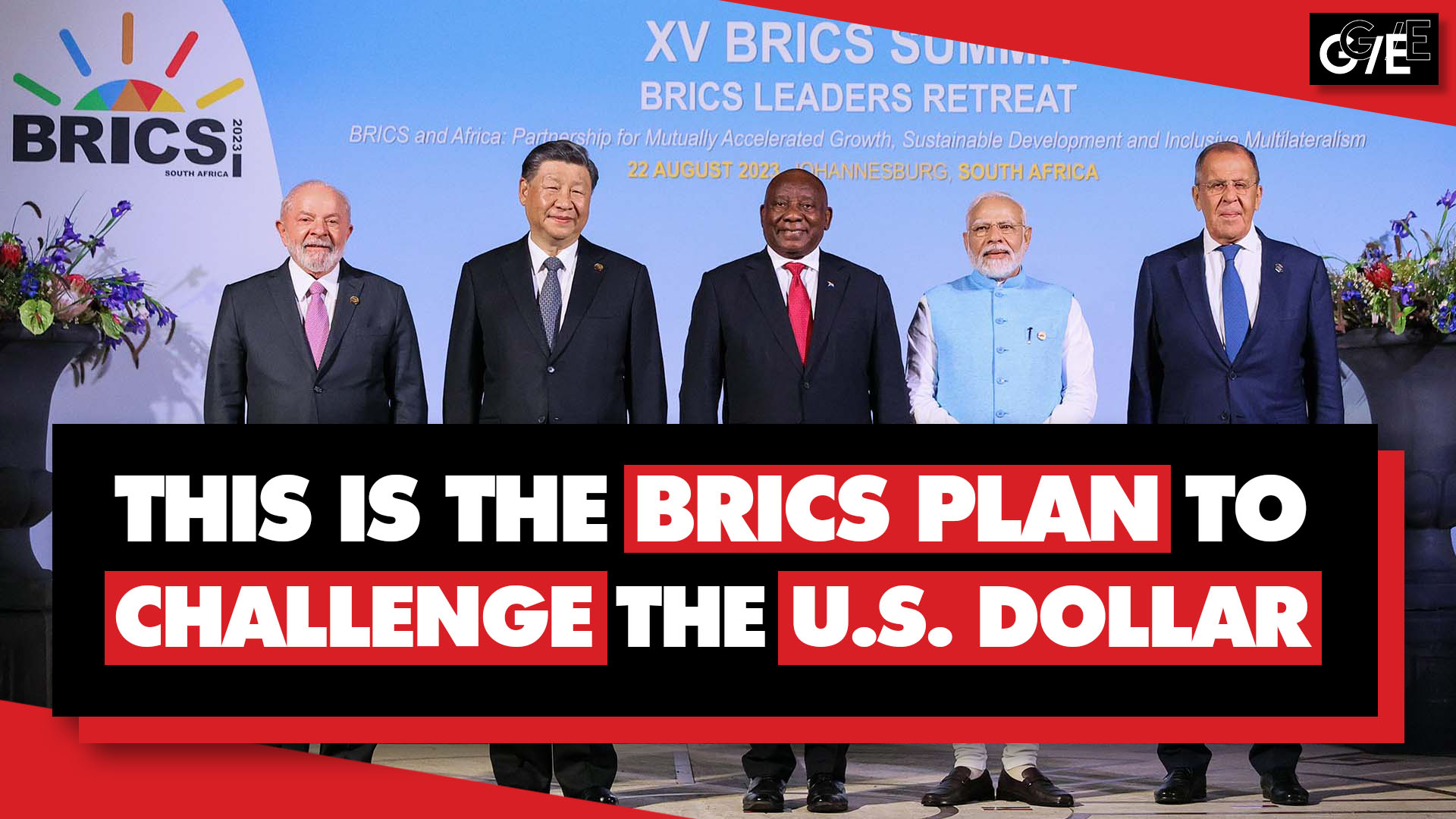The BRICS Cross-Border Payment Initiative (BCBPI) will use national currencies, instead of the US dollar. Russia’s finance ministry and central bank released a report detailing plans to transform the international monetary and financial system.
As the chair of BRICS for 2024, Russia proposed the creation of a BRICS Cross-Border Payment Initiative (BCBPI), in which members of the organization will use their national currencies to trade.
BRICS will likewise establish an alternative messaging infrastructure to circumvent the SWIFT system of interbank communication, which is overseen by the United States and subject to Western unilateral sanctions.
There are also plans for the establishment of a BRICS Grain Exchange and associated pricing agency, with centers for trade in commodities like grain, oil, natural gas, and gold, which can likewise be used to settle trade imbalances.
These proposals were outlined in the report “Improvement of the International Monetary and Financial System”, which was co-authored by the Ministry of Finance of the Russian Federation, the Bank of Russia, and the consulting firm Yakov and Partners.
In February 2024, the finance ministers and central bank governors of BRICS met in Sao Paulo, Brazil. There, the Russian representatives said they would prepare a report “for BRICS countries’ leaders with a list of initiatives and recommendations on ways to improve the international monetary and financial system”.
Russia’s Finance Minister Anton Siluanov explained the motivation:
“The current system is based on existing Western financial infrastructure and the use of reserve currencies. It is severely flawed and is increasingly used as a tool of political and economic pressure. Another reason for a reform of the international monetary and financial system is the geo-economic fragmentation that became a result of the abuse of trade and financial restrictions.”
The Russian BRICS chairmanship report argued that the international monetary and financial system (IMFS) is not only unjust but also inefficient, as it is a monopoly that suffers “from excessive reliance on a single currency and centralized financial infrastructure”.
The document noted that the “current IMFS is primarily serving interests of AEs” (advanced economies) – that is, largely the wealthy countries of the West.
As of 2023, the original five BRICS countries make up 32% of global GDP (measured at purchasing power parity, PPP), but have only 13.54% of voting shares in the IMF.
On the other hand, the G7 nations hold 41.27% of the voting shares in the IMF, despite the fact that they comprise just 30% of global GDP (PPP).



The protocol isn’t even the issue, banks already use XRP.
It’s the fact that USD is propped up by Uncle Sam’s globalized monopoly which is kept in tip top shape by geopolitical power.
Everyone trades in USD because it’s the de facto currency and it’s stable because the government can abuse its power to keep it that way.
No one trusts the value of the Ruble, Yuan, Rupee, or even any other currency except for maybe the Euro. They all exist for internal use, which means its just gets compared in value to USD whenever you have to deal with anything external, which is all the time.
BRICS would only fly if a stable trade medium can rapidly prove its worth with market stress and trade requirement, otherwise everyone will just continue to use USD, hence why the USA doesn’t currently view it as much of a threat. And even if you could get countries on board, the US can hold on to a massive noose around everyone’s neck by refusing to trade in anything but USD, which would effectively shut you off from trading with a massive portion of US based/owned/partner companies.
The rise of crypto and other limited quantity intermediaries shows that stable value step is far easier than it once was, and of course with China and Russia having ridiculous levels of precious metal wealth a worse case scenario would just be a literal gold standard currency for brics transactions.
While the US might throw a hissy fit about this (I mean they invaded Libya exclusively because Libya were launching a gold standard to trying to get non US oil trading to adopt it) they dont have the ability to say no. The US has no manufacturing sector compared to China or Russia, the former of which the US relies on massively for the majority of its domestic manufacturing needs. It also can’t compete in the remote service economy compared to India, and again has outsourced a large chunk of that part of its economy there.
US sanctions only work if the country sanctioned provides nothing of value that can’t be easily done domestically. There’s a reason that China as a whole is not sanctioned despite doing things far worse than Cuba ever did.
Refusing to trade in USD would be the same as sanctions in this scenario, and I’m willing to bet brics has figured out that they have enough demand across their member nations to support not trading with the US.